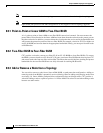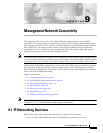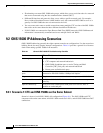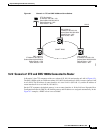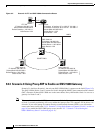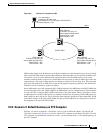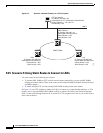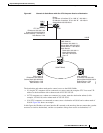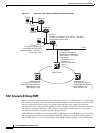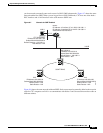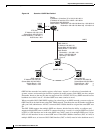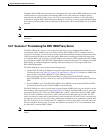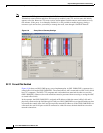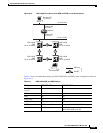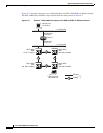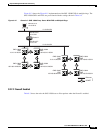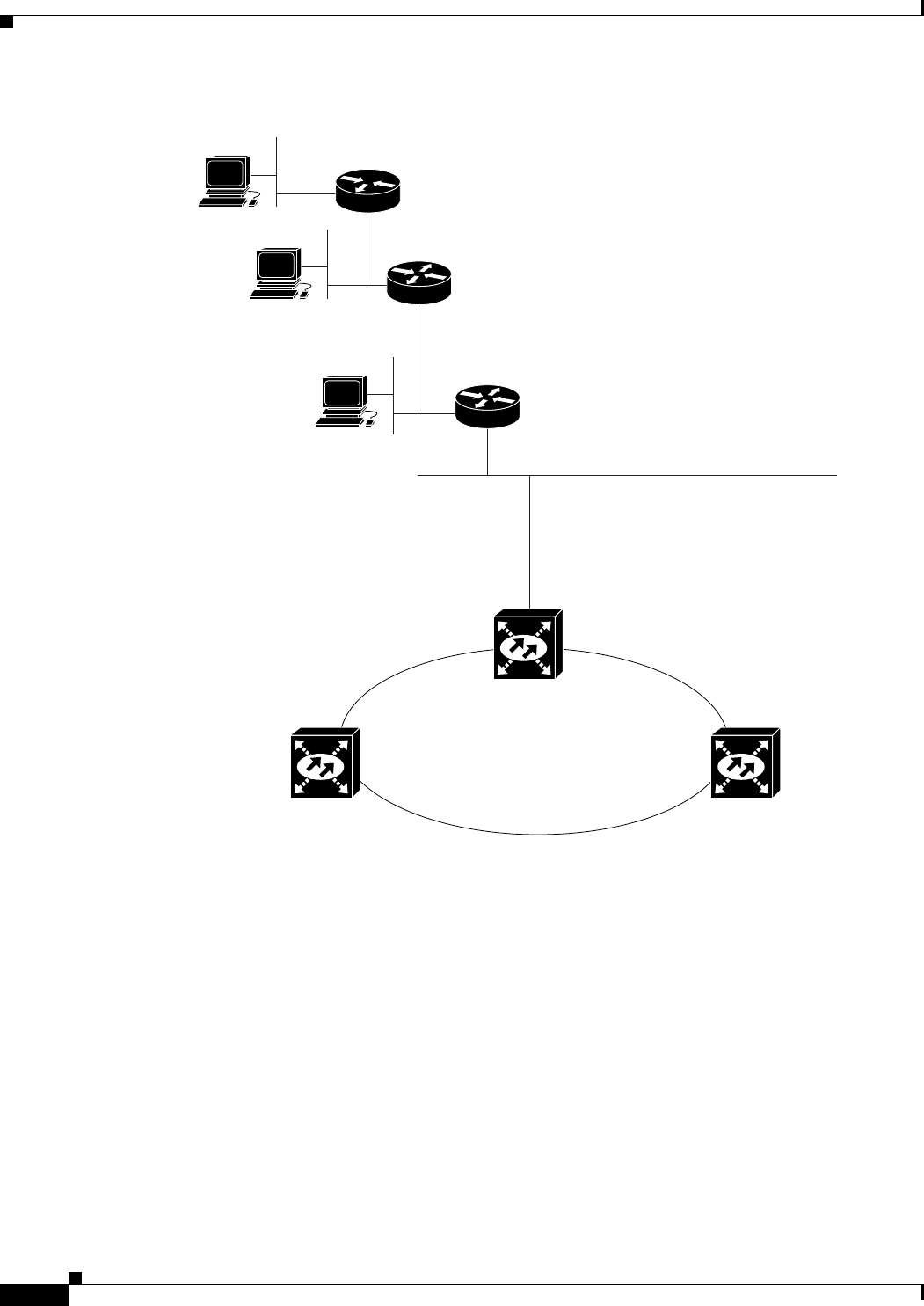
9-8
Cisco ONS 15600 Reference Manual, R7.2
Chapter 9 Management Network Connectivity
9.2.6 Scenario 6: Using OSPF
Figure 9-6 Scenario 5: Static Route with Multiple LAN Destinations
9.2.6 Scenario 6: Using OSPF
OSPF is a link state Internet routing protocol. Link state protocols use a “hello protocol” to monitor their
links with adjacent routers and to test their links with their neighbors. Link state protocols advertise their
directly connected networks and their active links. Each link state router captures the link state
advertisements (LSAs) and puts them together to create a topology of the entire network or area. From
this database, the router calculates a routing table by constructing a shortest path tree. The router
continuously recalculates to capture ongoing topology changes.
ONS 15600s use the OSPF protocol in internal ONS 15600 networks for node discovery, circuit routing,
and node management. You can enable OSPF on the ONS 15600s so that the ONS 15600 topology is
sent to OSPF routers on a LAN. Advertising the ONS 15600 network topology to LAN routers means
CTC Workstation
IP Address 192.168.1.100
Subnet Mask 255.255.255.0
Default Gateway = 192.168.1.1
Host Routes = N/A
Router #1
IP Address of interface ”A” to LAN “A” 192.168.1.1
IP Address of interface “B” to LAN “B” 192.168.2.1
Subnet Mask 255.255.255.0
ONS 15600 #2
IP Address 192.168.2.20
Subnet Mask 255.255.255.0
Default Router = N/A
Static Routes = N/A
ONS 15600 #1
IP Address 192.168.2.10
Subnet Mask 255.255.255.0
Default Router = 192.168.2.1
ONS 15600 #3
IP Address 192.168.2.30
Subnet Mask 255.255.255.0
Default Router = N/A
Static Routes = N/A
LAN B
LAN A
Int "A"
Int "B"
SONET RING
81206
Static Routes
Destination 0.0.0.0
Mask 0.0.0.0
Next Hop 192.168.2.1
Cost = 2
LAN C
LAN D
Router #3
Router #2



